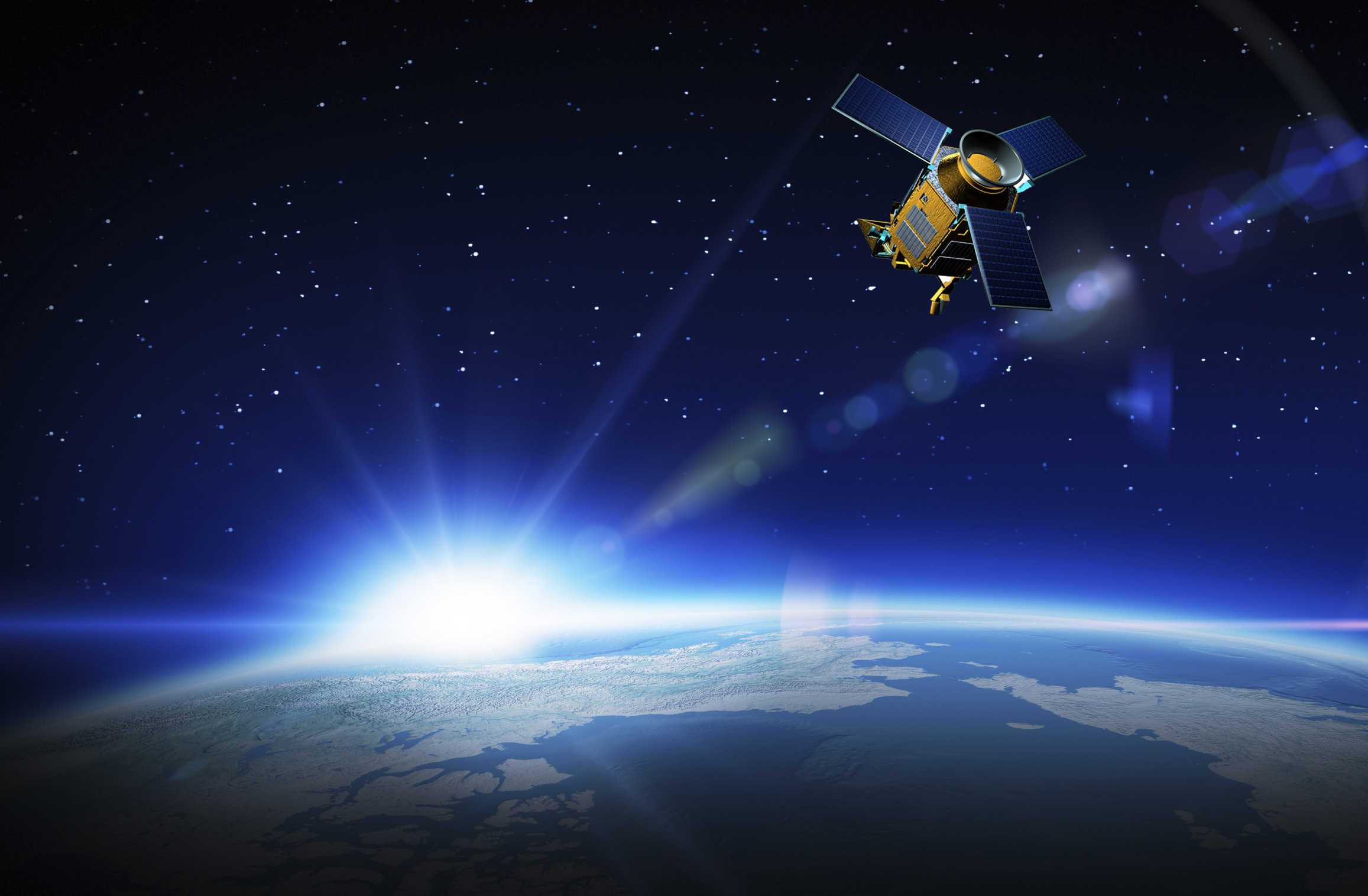Knowledge institutes join forces to research climate change and air pollution using satellites
The KNMI, TNO, SRON and Delft University of Technology will collaborate on research and technology development in the field of earth observation. The creation of the ‘Clear Air’ consortium is intended to strengthen the prominent knowledge position of the Netherlands in using satellites to measure emissions and the composition of the atmosphere. Public authorities and companies will be able to use this knowledge to limit climate change, and improve both air quality and biodiversity. The cooperation was formalised today with the signing of a memorandum of understanding (MoU) and the publication of a vision document describing the partners’ aims.
The emissions of greenhouse gases, nitrogen and air pollution, pose major challenges to society. More than 200 countries have already signed the Paris Climate Agreement, which aims to reduce the harmful impact of greenhouse gases on our climate. Air pollution causes more than four million premature deaths each year and over 90% of the world's population lives in areas where the air quality is below the WHO standard. In addition, nitrogen emissions in the Netherlands – but also elsewhere in Europe – are responsible for a loss of biodiversity in natural areas and damage to the economy.
Accurate measurements with satellites
In order to reduce an emission, it is very important to know, as precisely as possible, what its source is and how it disperses through the atmosphere. Satellite instruments and satellite data play a unique role in this. They offer globally consistent, accurate and comparable observations of harmful substances and gases and their dispersion. This matters because only a limited number of such measurements is currently done and emission data if often based on estimates. The measurements from satellites will make it possible to conduct scientific research and to design and monitor effective policies.
The Netherlands is still in the lead
Through governmental investments in recent decades, the Netherlands has gained a worldwide leading position in satellite technologies that are used for monitoring and mitigation of climate change and air quality. This includes both scientific research and technology development. The Dutch space instrument TROPOMI, for example, maps the entire world each day for air pollution (nitrogen dioxide) and greenhouse gases (methane). To continue playing this leading role globally, the Netherlands must further strengthen scientific research and technological innovation in the field of earth observation. This requires a structural collaboration: the Clear Air consortium.
Need for new atmospheric information
Each of the consortium partners has developed its own expertise in different fields. These range from measuring emissions, developing models for atmospheric chemistry and processing satellite data, to developing and producing innovative satellite instruments. The combination of this expertise can be used to develop data products and instruments that provide new atmospheric information to science, government and industry. The Clear Air consortium is starting with a team of four partners. Over the coming period, those involved will consider whether the consortium can be expanded to include other Dutch research institutes and whether international collaborations can be established.
In the vision document published today, the Clear Air consortium gives examples of what it wants to contribute to, such as:
- Supporting the Netherlands, other European countries and international partners in the independent verification of greenhouse gas emissions in order to enable future assessments of the Paris Agreement. This will be done by detecting and identifying emission sources at various scales, from leaky gas pipes to the national level, thereby creating a level playing field for emission reduction.
- Monitoring emissions that are central to Dutch environmental and public health policy, such as ammonia and nitrogen dioxide emissions, which damage Natura 2000 areas and for which policy changes have economic implications.
In addition, Clear Air will work with Dutch companies that are becoming increasingly active in making satellite data commercially available, such as data service providers and satellite or instrument manufacturers. In collaboration with Dutch partners, the technological and scientific efforts of the Clear Air consortium can therefore serve as a green driver of sustainable economic growth.
